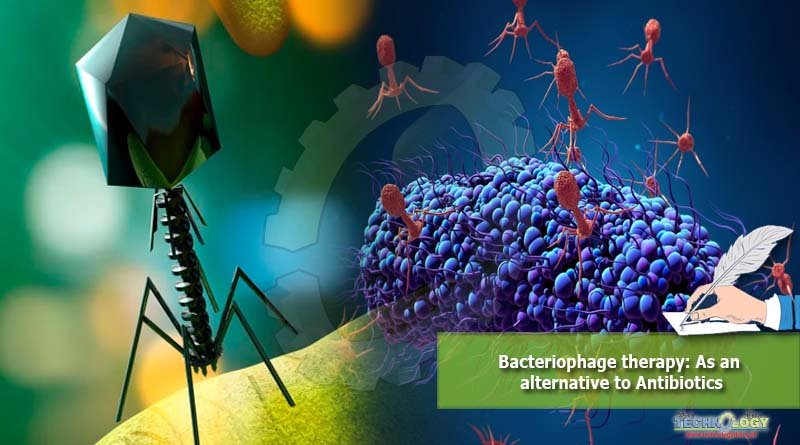Bacteriophage is the “viruses” that “prey on bacteria”. They are ubiquitous. phages were Discovered in 1915 by Twort and independently by d’Hérelle in 1917.
 Antibiotics are the antimicrobials drugs that are used to kill or slow down the growth of microbes. Antibiotics are the most commonly prescribed drug. All the hospitals consumed their maximum budget on antibiotics.
Antibiotics are the antimicrobials drugs that are used to kill or slow down the growth of microbes. Antibiotics are the most commonly prescribed drug. All the hospitals consumed their maximum budget on antibiotics.
Phage is composed of a nucleic acid (DNA/RNA) a head, tail sheath and tail fibers. Phages are of two types lytic and lysogenic. The Lytic phages are used for therapeutic purpose. Specific Phages attack on specific pathogenic bacteria in a living body and eradicate them by controlling the host (pathogenic) replication machinery, synthesize many of themselves, kill the host, and again attack another host bacterium.
MECHANISM OF ACTION:
Phages replication consist of following steps: Attachment, Penetration, Synthesis of early proteins, Replication of viral DNA,Assembly and Lysis.
Phages have specific receptors on their tails for specific bacteria. They attach, inject their nucleic acid into the bacteria, hijack the host’s cell machinery, use its protein content to synthesize multiple copies of its nucleic acid and its particles then release lysin to rupture the host cell wall and move out of the cell to infect other pathogens in this way they can eliminate the whole pathogenic population from the site of infection.
Phages advantages over antibiotics:
Phages are used as an alternative to antibiotics, in those patients that have been developed multi drug resistance (MDR).
- Development of resistance in various infectious microbes against wide range of antimicrobial drugs, which results in lowering the efficiency of treatment and increasing the mortality and morbidity rate in patients. They are also called as “superbugs”.
- Antibiotics are synthetic while phages are not synthetic, they are natural occurring predators of bacteria. Antibiotics are of broad spectrum while phages are of narrow spectrum and have high specificity against bacteria narrow spectrum of phages have benefit that they do not affect normal microflora at the site of infection while antibiotics disturb normal flora.
- Extensive application antibiotics can cause resistance in bacteria against that drug and drug is no more effective against that disease-causing bacteria while development of phage resistance is very rare.
There is also a chance of development of resistance against phages. But there is an alternative to this problem that we use “phage cocktail”. Hundreds or thousands of phages are combined to treat microbial infections. There is approximately no chance of resistance development when use phage cocktail.
Conclusion:
After the successful bacteriophage therapy, the risk of resistance in microbes have reduced to a significant level. however, use of bacteriophage have its own side effects and limitations due to lack of facilities in developing countries like Pakistan, India, Sri Lanka. A lot of work is done but still there is a gap for all vet doctors and other welfare organizations to work and sort out this issue for the better and safe future of mankind.
Authors: Sara khan, Dr. Ali Raza from Institute of Microbiology, Faculty of veterinary sciences, University of agriculture Faisalabad, Pakistan
